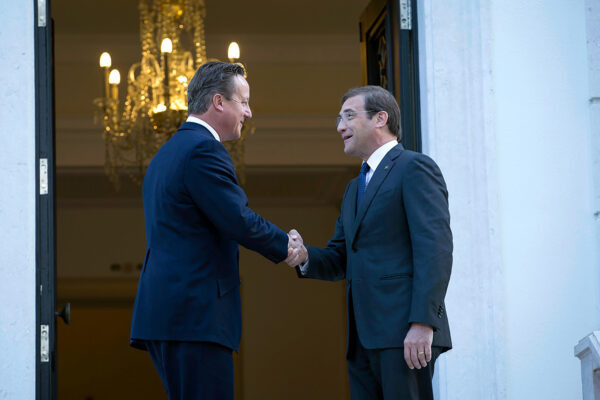
After wrangling with other European leaders for two days, David Cameron emerged triumphant from a summit on Friday night, claiming to have negotiated a deal that gives Britain “special status” in the EU.
The announcement signals the start of a referendum campaign in the United Kingdom about the island nation’s future in the bloc. Polls suggest that voters are evenly split on whether to stay in the EU or not.
Cameron won reelection last year on a promise to renegotiate Britain’s membership before calling the referendum.
Contentious
Friday’s deal will be similar to the reforms set out by European Council president Donald Tusk earlier this month. These include giving national parliaments the power to block EU legislation and winning an assurance from other member states that Britain is not compelled to join further political integration with the countries in Europe.
Cameron also won safeguards against financial regulation being imposed on banks and insurers in the City of London by the eurozone. France was reportedly resistant to giving Britain’s banking sector special status, arguing for a level playing field.
Also contentious were Cameron’s demands to freeze in-work benefits for workers from other EU countries and reduce child benefits for those whose children remain abroad.
Central and Eastern European nations wanted to restrict the change to new arrivals rather than the one million EU nations who already work in the United Kingdom.
Drama
Politico reports, though, that much of the drama was staged.
As he entered the summit Thursday, Cameron said he would be “battling for Britain.” Leaders from France and Eastern Europe played their part as well, voicing skepticism over Cameron’s demands. The aim, diplomats acknowledged privately, was to make it appear that Cameron won bona fide concessions from a recalcitrant EU establishment.
In truth, many countries welcomed the reforms Britain initiated.
Denmark and the Netherlands, governed by likeminded right-wing parties, appreciate the extra power for national parliaments and Cameron’s emphasis on strengthening the single market. Austria and Germany both house many workers from former communist states in Eastern Europe and won’t mind being able to scale back child benefits.
Two-speed Europe
Britain is already the most semi-detached member of the 28-nation bloc, having opted out of the euro currency, the Schengen free-travel zone and areas of police and judicial cooperation.
Friday’s deal not only further distances Britain from the continent; it is a step toward formalizing a two-speed Europe.
In the long term, the Atlantic Sentinel has argued, this may turn out to be the most significant of Cameron’s reforms. It puts the brakes on any move toward federalization and instead could see a more flexible European Union emerge, one in which countries variously opt in and out of integration schemes.
Such an arrangement may prove more durable than the current commitment to “ever-closer union,” which voters across Europe have grown wary of.
